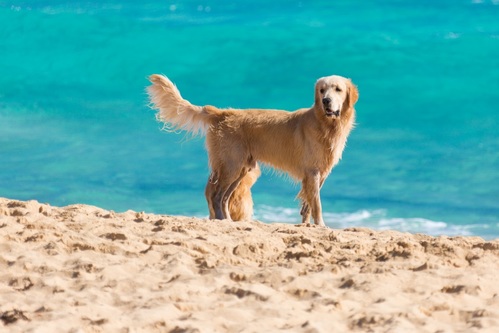|
Heat exhaustion, also often referred to as heat stress or heat stroke, is a life-threatening condition that occurs in animals of all kinds. In our hospital we frequently see this in dogs over the hot summer period. When dogs and cats are not able to dissipate heat adequately, their body temperature soars well above the normal range of 37.5 to 39.0 degrees Celsius. If their body temperature ever rises beyond 40.5 degrees Celsius then there is a high risk that internal organs may start to get damaged. Kidney failure, liver disease, clotting problems, bloody diarrhoea, vomiting, gastric ulceration, seizures and coma are a few of the conditions that may occur. Even with aggressive treatment, prognosis can often be quite poor. Heat stroke occurs most often when animals with problems cooling themselves are exposed to excessive heat and/or humidity. A few health factors associated with heat exhaustion include:
Environmental factors obviously play a huge role in causing heat exhaustion. Sadly, every summer you will often hear of children or pets that have died after being left in a hot car. If you have a pet prone to heat stroke, please keep them out of the heat whenever possible. Heat stroke can develop in as little as five to ten minutes. A common story we hear is a geriatric pet that goes outside and then can’t get back through the doggy door or struggles to position themselves out of the sun. Symptoms to watch for include rapid breathing, a depressed or sad attitude and dark red gums. They may also experience vomiting and diarrhoea. If the pet is not cooled off quickly, their condition continues to rapidly deteriorate into bloody vomiting or diarrhoea, collapse, seizures and problems breathing. The RSPCA have provided 10 useful tips to help your pet avoid heat exhaustion in hot weather:
We all like to have our pets with us when we’re out enjoying the sun, but whether it’s the beach or a football game, sometimes the safest and most loving thing to do is leave them home!
0 Comments
|
AuthorContributors come from the friendly and knowledgeable staff at Eltham Veterinary Practice Archives
October 2018
Categories |
Copyright Eltham Veterinary Practice

 RSS Feed
RSS Feed